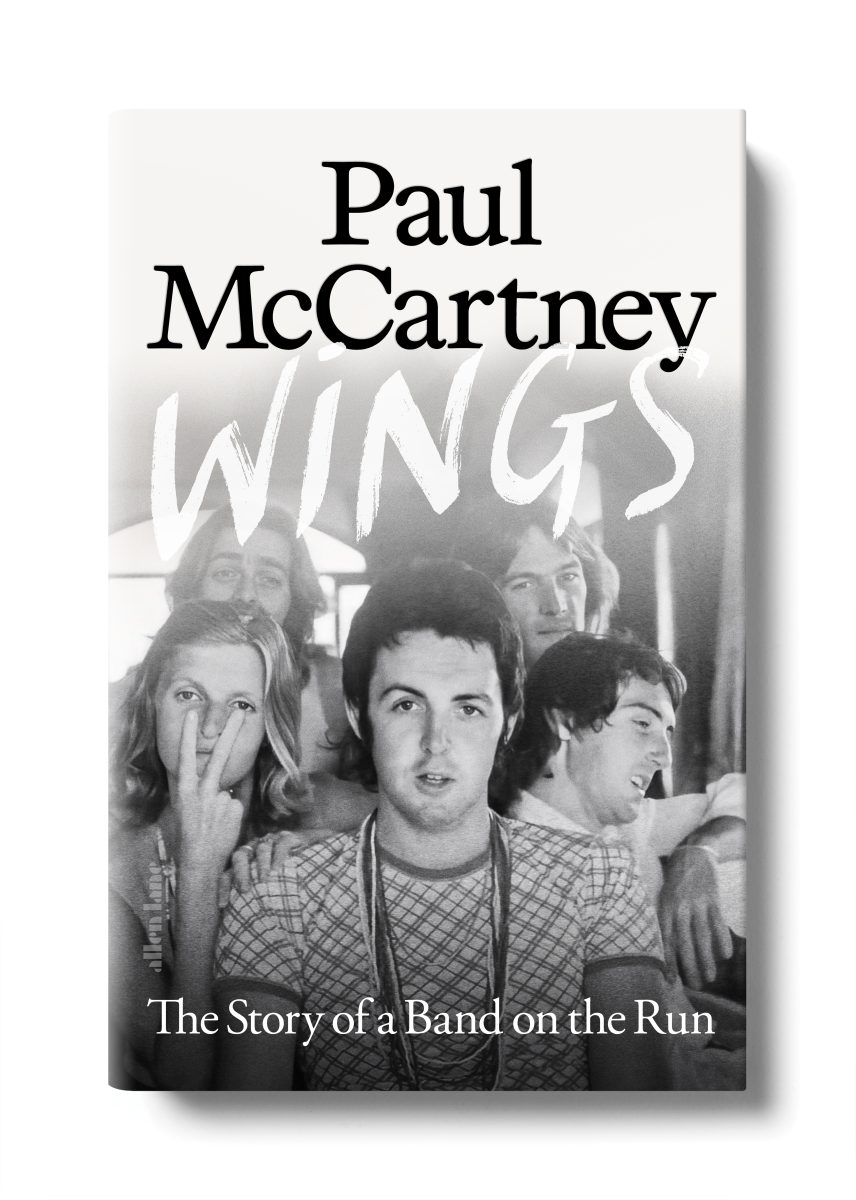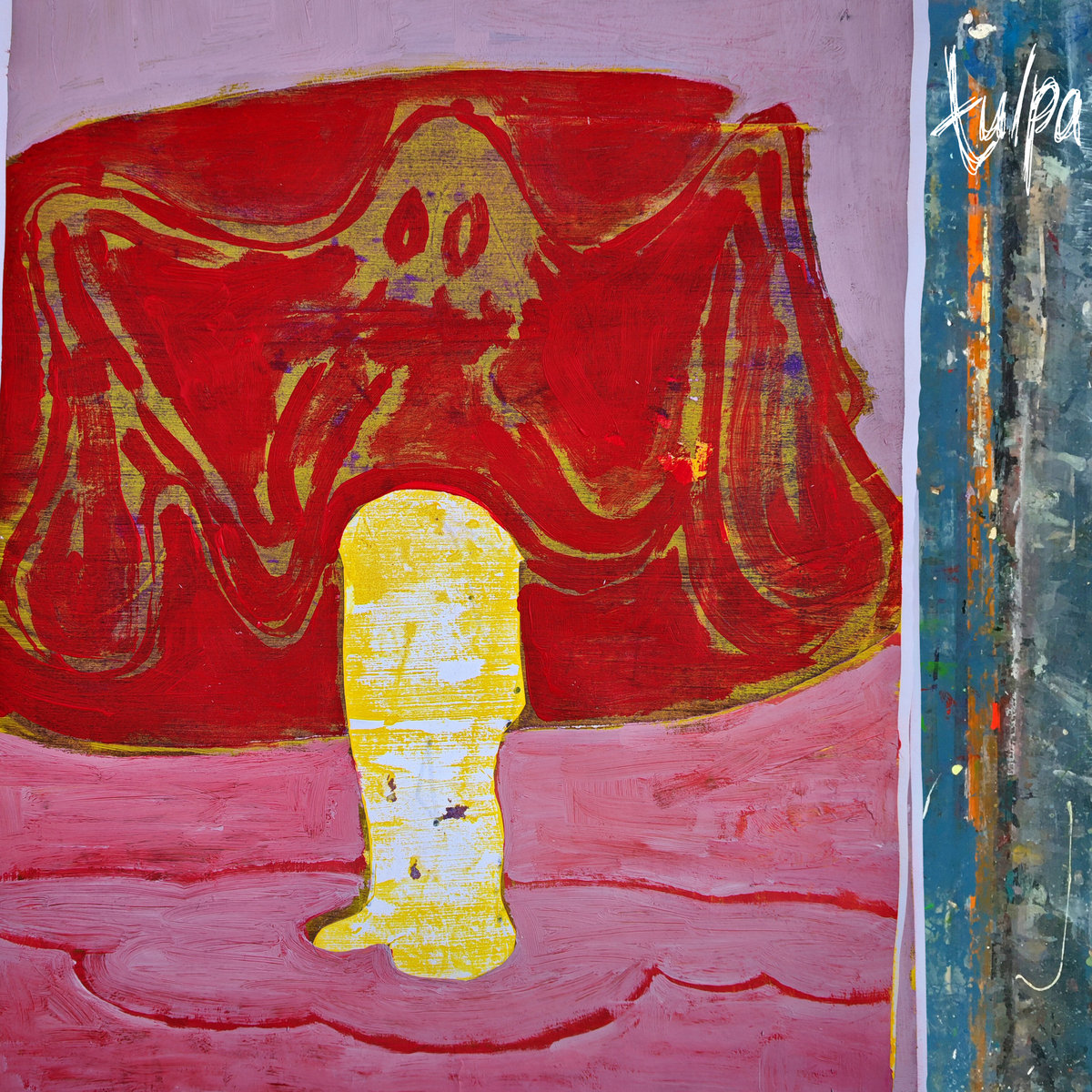Wings: The Story of a Band on the Run by Paul McCartney
Allen Lane – Out Now
Wings: The Story of a Band on the Run charts Paul McCartney’s journey through the 1970s; reshaped from a boy band icon to a family man at the helm of his own musical identity.
Paul McCartney will always be first and foremost a Beatle; the yin to John Lennon’s yang. Rising to the heights of fame in the swinging sixties, they were the group’s and the decade’s predominant songwriting partnership. By the late 1960s, The Beatles were more trapped by success than in control of it, and new horizons beckoned. Wings became McCartney’s engine for a post-Beatle identity, one that would define him as a person, as well as one of the world’s most powerful musicians throughout the seventies and beyond.
Ted Widmer, editor of Wings: The Story of a Band on the Run, tracks McCartney’s ‘musical odyssey’ through the post-Beatles era, drawing on a set of interviews recorded for the forthcoming documentary Man on the Run, by Morgan Neville (set for release in February 2026).
A tapestry of detailed interviews, archives and timelines, gives the musical and political context of the UK and US music scenes, year by year. Photographs and discographies chart the band’s early forays, huge successes and ultimate demise. Although it is hard to describe it as that, when Paul McCartney had been recognised as the most successful songwriter of all time in October 1979, months before Wings’ climactic Japan tour cancellation, which he acknowledges signalled the band’s end. Solo albums, McCartney in 1970 and McCartney II in 1980, bookend the Wings era, a decade which ultimately marks his transition from a band member to a solo musician.
At the start of the 1970s, McCartney returned to basics, adopting a DIY ethos. In his home studio in remote Scotland, he used a Studer 4-track for his first self-titled solo release. He persuaded his new wife, the American photographer Linda Eastman, to learn keyboard and join him in a band, first releasing Ram as a duo, collaborating with ex-Moody Blues Denny Laine (who would remain in Wings throughout their tenure). In the band’s initial iteration, Irish lead guitarist Henry McCullough and New York session drummer Denny Seiwell completed the lineup.
The five-piece hit the road for a series of impromptu gigs, with kids and dogs in tow. Taking audiences by surprise, Wings had space to take flight in a series of low pressure, impromptu performances. By 1973, having cut their teeth on studio albums Wild Life and Red Rose Speedway, their third album, Band On The Run, consolidated their success and finally won approval from the music press. Recorded in Lagos, with Wings reduced to a trio, Band on the Run brought new challenges and experiences. McCartney was summoned by the great Fela Kuti to allay concerns that he might be stealing Nigerian cultural influences.
The following year Wings headed to the US to record Venus and Mars in New Orleans. New energy came from guitarist Jimmy McCulloch and Geoff Britton on drums briefly, before Jo English replaced him. The album launch was appropriately star-studded, and McCartney secured another US No1 hit with ‘Listen to What the Man Said’ 1974 also saw Lennon and McCartney hanging out and jamming together again – their differences put aside.
During 1975/76, the band hit their stride with another album, Wings At the Speed of Sound. Wings Over the World followed, an epic-scale 13-month international stadium tour. The group performed 65 concerts to two million fans. In 1977, ‘London Town’ was recorded on a yacht in the Virgin Islands, sustaining levels of success. However, that year’s smash hit single, ‘Mull of Kintyre would become McCartney’s era defining success. This may have seemed a counterintuitive release in the heyday of punk, but the facts of history speak for themselves. Co-authored by Paul McCartney and Denny Laine, the single sat at the top of the charts for 9 weeks. It held the accolade, ‘all time most successful single’, until Band Aid released ‘Do They Know It’s Christmas?’ in 1984.
A Wings Greatest, singles album in 1978 was an opportunity to maximise sales of songs not recorded on other albums. Perhaps more significantly, it marked a slowing down in the recording of new material. As the decade approached its end, the band membership shifted once more. The final Wings line-up saw guitarist Laurence Juber and drummer Steve Holly join the McCartneys and Denny Laine for Back to the Egg with a more scaled-down ethos.
Paul McCartney enjoyed the musical successes of the 1970s at the vanguard of the best of them. Following the Beatles heyday and collaborations with producer George Martin, his musical pathways were not always conventional or easy. Some might not recognise Macca as a DIY musician, associated with banned records, multiple charges for possession of marijuana (and one incarceration), and a backing vocalist on the Sex Pistols Pretty Vacant, with whom he shared a producer. He also proved himself to be a shrewd businessman, a celebrity who handled the media on his own terms, and a man who brought a strong family ethos to the heart of his creativity.
Through a 2025 lens there is a juxtaposition between the wholesome inclusivity and romance of McCartney’s relationship with wife Linda, his key collaborator, their kids in tow, as they toured the world, his ethical stance on vegetarianism and environmentalism as demonstrated by the band’s first album release Wild Life, and an undeniable rock n roll lifestyle, arrests, and a peppering of musical bust ups. The book doesn’t shy away from including some reality checks: whilst they generally revel in happy memories of childhood, daughters Mary and Stella recall middle of the night shifts from venue to tour bus to accommodation, and the Japan arrest. Heather and James McCartney notably do not contribute, whilst they are very much included within the narrative.
Organised into eleven chapters, we hear the story of Wings through first-person accounts from musicians, collaborators and friends. In many ways, the story of Wings shows an altogether more innocent era. The notion of one of the world’s most famous superstars bunking to a remote farm before leading an impromptu tour of UK universities belongs in the pre-internet, pre-social media era. It seems implausible today.
Wings had something of a hard time in the press before the unstoppable ‘Band on the Run’. McCartney’s post-Beatle releases contain masterful songs, and sold in volumes; but early Wings albums did not meet with media approval. Linda was pilloried for becoming Paul’s musical collaborator. The British public held something of a grudge against an American woman who they perceived had stolen a national treasure. Yoko Ono, whom John Lennon had left his first wife for, fared no better.
John Lennon’s untimely death in December 1980 sent a collective shockwave around the world. The book captures the sense of deep loss felt by his fellow Beatles. It also reflects on a sense of shared vulnerability that they, too, might be targeted. Significantly, George Harrison was also attacked in his home years later by an intruder who inflicted multiple stab wounds before being apprehended by Harrison’s wife.
The comprehensive detail offers a fascinating trip down memory lane, celebrating one of the 1970s’ most successful bands. A hefty tome at 549 pages (the index alone spans 20), it resonates as a highly collectable piece of memorabilia. Conjuring songs, album covers, names of producers, studio engineers, poster inserts – it celebrates all the rich trappings of vinyl. With a timely pre-festive season release, Wings The Story of a Band on the Run is a real Christmas cracker.
~
Words by Bryony Hegarty – her author profile is here:
A Plea From Louder Than War
Louder Than War is run by a small but dedicated independent team, and we rely on the small amount of money we generate to keep the site running smoothly. Any money we do get is not lining the pockets of oligarchs or mad-cap billionaires dictating what our journalists are allowed to think and write, or hungry shareholders. We know times are tough, and we want to continue bringing you news on the most interesting releases, the latest gigs and anything else that tickles our fancy. We are not driven by profit, just pure enthusiasm for a scene that each and every one of us is passionate about.
To us, music and culture are eveything, without them, our very souls shrivel and die. We do not charge artists for the exposure we give them and to many, what we do is absolutely vital. Subscribing to one of our paid tiers takes just a minute, and each sign-up makes a huge impact, helping to keep the flame of independent music burning! Please click the button below to help.
John Robb – Editor in Chief






Leave a Reply